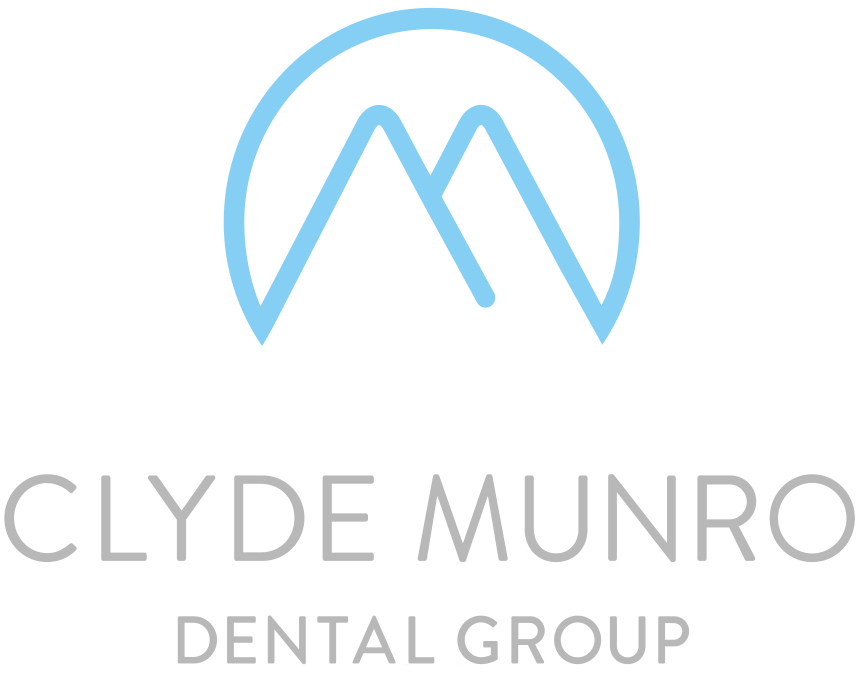Worried About Dental Implants? Discover How Clyde Munro’s Sedation Options Can Help
Relax when you're in the dentist's chair
Published: 06 May 2025
At Clyde Munro, we take pride in providing treatments that consistently deliver excellent patient outcomes. While we are always delighted to see our patients walk through the door, we recognise that any dental treatment can be nerve-wracking for many.
Approximately 53% of Britons experience anxiety when visiting the dentist. Research indicates that the fitting of dental implants and dental pain are two of the most common triggers of dental anxiety.
We believe that one of the best ways to reduce anxiety is through understanding and knowledge of our treatments and what they entail.
Read on as we look in detail at the dental implant process, treatments available and the ways in which Clyde Munro can support patients in reducing dental anxiety.
What are Dental Implants?
Firstly, it’s important to understand what a dental implant is and how it functions. As a permanent replacement for a missing tooth or multiple missing teeth, dental implants improve your smile while helping to maintain bone integrity.
When seeking dental implants with Clyde Munro, there are several implant options that adhere to a bespoke plan. While we will examine these in more detail below, the fundamental surgical process remains unchanged.
- First, a local anaesthetic is applied to minimise discomfort. If preferred by the patient or the dentist, a sedative may also be used at this stage to further reduce anxiety and enhance comfort.
- Next, the dentist will use computer technology to fit the titanium implant precisely and comfortably.
- A temporary restoration will be provided at this stage, as advised in your discussions with your dentist, so the healing of the gum and bone can begin. Once the healing process is complete, the patient will be asked to return for the fitting of the artificial tooth.
Different Types of Dental Implants
With an understanding of the basic fitting process, we can take a look at the types of implants available to Clyde Munro patients.
Single tooth replacement
The process that most closely resembles the basic outline above is single implants, which offer a minimally invasive option. This involves creating a prosthetic tooth tailored to your needs for a natural smile and functional bite.
Multiple tooth replacement
Functionally similar to single-tooth replacements, multiple-tooth replacements differ by utilising the minimum number of implants to cover the affected area. This is achieved by employing a conjoined, multi-tooth implant called a ‘bridge.’ This creates a natural look while also minimising costs and the number of practice visits for the patient.
Full-arch implants
Full-arch implants are most suitable when a patient needs multiple extractions or seeks an alternative to dentures. Utilising only four implants to support an entire arch of teeth, this option provides a cost-effective and minimally invasive solution.
Implant-fitted dentures
If you prefer to use dentures, we can help to improve your experience. Dental implants can be an effective method of securing dentures for a comfortable fit while avoiding slipping or the unpleasant taste and added costs of dental adhesive.
CHROME GuidedSMILE
A method used for full-arch implants, this digitally planned solution allows for a whole row—or two whole rows—of teeth to be implanted in a matter of hours. Accurate, durable, and time-effective, CHROME GuidedSMILE is a revolutionary treatment we’re proud to offer at a number of Clyde Munro practices.
Do Dental Implants Hurt?
Regarding the pain experienced during this process, studies indicate that 50% of patients under local anaesthetic felt no pain at all, 35% felt mild pain, 12% felt moderate pain, and only 2.92% of patients reported severe pain.
Seventy-two hours later, patients noted further reductions in pain, with 64% experiencing no pain and fewer than 2% still experiencing severe pain. In cases where sedatives are administered, the percentage of those experiencing pain decreases even further.
In short, while you can expect to experience some mild discomfort during the procedure, for the vast majority of patients, the pain is either mild or non-existent, and any symptoms you do experience will likely decrease rapidly.
Dental Anxiety
We hope that the information above will have provided some context and relief to the dental implant experience. However, we understand that for some, the experience may still be somewhat daunting and that they may be experiencing what is commonly referred to as dental anxiety.
Fortunately, there are methods that Clyde Munro can use to help minimise your anxiety, as well as methods you can try for yourself before you arrive for your appointment.
How to Cope with Dental Anxiety
Before we look at how Clyde Munro can support with dental anxiety, we can examine ways to reduce your internal feelings of anxiety. Here are some suggestions on how to calm your mind and rationalise the process before your procedure.
Focus on dental routine
When we’re stressed, our minds often deprioritise our routines. This can negatively impact our dental hygiene practices and further worsen the very issues we’ve been avoiding. This includes brushing twice a day, flossing, and consuming more of the right foods.
Getting a good sleep
Falling asleep can be challenging when you’re anxious, especially if you’re worrying about an appointment, but it can make a significant difference to your mood. Good sleep can enhance cognitive function and regulate stress-related hormones like cortisol—all of which are essential for dealing with the unfamiliar.
Breathing techniques and meditation
Much like getting a good rest, meditation and measured breathing can help us make sense of our thoughts. Mindfulness techniques such as meditation can be more effective in giving us the headspace to understand why we feel the way we do about certain worries. Breathing techniques can help prevent our bodies from entering ‘fight or flight’ mode.
Talking to your dentist
Talking with your dentist before your appointment can significantly reduce stress. Much of our anxiety, especially at the dentist’s, stems from a fear of the unknown. While this will differ from person to person, an understanding of the procedure may alleviate much of the anxiety related to our visit.
Sedation at the Dentist
At Clyde Munro, our dental practitioners will do everything possible to ensure your visit goes smoothly. As mentioned previously, a local anaesthetic will be used during your dental implant procedure. However, if you experience anxiety or are scheduled for a lengthy or complex procedure, dental sedation can be used to alleviate anxiety and discomfort associated with certain procedures.
Treatments likely to involve sedation include, but are not limited to:
- Aesthetic treatments such as veneers, bridges and crowns
- Hygiene appointments (in cases of patient anxiety)
- Surgical procedures such as root canals, dental implants and extractions
So, What Types of Sedation Are Available at Clyde Munro?
Oral Sedation
The first type of sedation is administered through inhalation of gas via a nosepiece. Primarily designed to support patients with a fear of needles, the sedative gas, known as nitrous oxide (sometimes colloquially referred to as laughing gas), is the slightly gentler of the two available options.
Not only will this significantly reduce your pain while keeping you conscious, but using this form of sedation also means you will likely be able to drive and continue with your day as usual after your procedure.
Suitable for both adults and children, this sedative typically induces few side effects; however, drowsiness and nausea are among the most common.
IV Sedation
Another option for patients is IV sedation, which, like oral sedation, reduces anxiety and discomfort while allowing you to remain awake.
When injected into the arm or hand, this treatment will likely induce a more intense feeling of sleepiness and may affect your memory of the procedure. IV sedation is more suitable for longer procedures due to its more potent effects. It is recommended for both adults and children with a particularly strong gag reflex or those who may struggle with oral sedation for various reasons, including additional support needs.
Symptoms like headaches and nausea, while mild, can be more common with this sedation method; however, driving, smoking, drinking alcohol, exercising, and working are not recommended for 24 hours after the treatment.
Complications
While dental sedation is usually very low risk for patients, there are specific occasions when it is not recommended. Before your treatment, it is essential to inform your dentist if you have any of the following conditions:
- Sleep apnoea
- Kidney or liver disease
- Thyroid disorders
- Obesity
- Obstructions to your upper airway
- Have recently experienced an inner ear infection or have had surgery in this area
Furthermore, if you regularly use any medication or illicit drugs, or if you are pregnant, this information should also be disclosed before treatment.
We hope this list has given you the tools to feel more confident about expressing and addressing your needs before the fitting of your dental implant. Once again, if you have any questions or concerns, don’t hesitate to speak to your nearest Clyde Munro practice, who will be more than happy to provide reassurance if needed.





